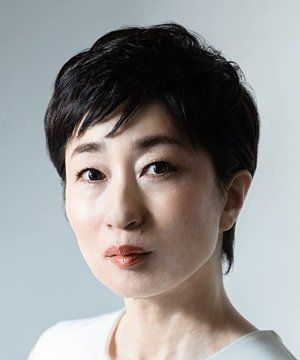
The Japanese film director is in Buenos Aires to participate, for the second time, in the renowned international independent film festival BAFICI. On this occasion Presentation of short films: “Lunch Woman” (co-directed by Gertjan Zuilhof) and “Doll Woman” in official competition within the Avant-garde and Gender category. Graduated from Zokei University, with a specialization in Design, Tokyo Oohara belongs to that minority of directors who act in their own films, which are mostly focused on telling stories of ordinary people, while reviewing the role of women in Japanese society. . This is also evident in the title of her films, which generally have the word “Woman” in them.
In the past, Oohara gained renown beyond Japan for productions such as “Nagoshi: Summer purification” (2014), “Nagoshi no Harae” (2016) and “Saotome: The Woman Who Plants Rice” (2014). She is also a specialist in the intriguing cinematic world of French master Jacques Rivette. She and she make up the Japanese independent film guild ‘Eiga-nabe’, since 2013.
Taking advantage of her time in Argentina, ReporteAsia interviewed her at the Cultural Center of the Embassy of Japan, where we were able to discuss her work and her vision of Japanese society, which looks from the feminine perspective, seeking to focus on social relationships, the love, loneliness, and certain problems that women face such as grooming and sexual harassment in public places.
Beginning the talk, Oohara told us about the genesis of “Bird Woman”, which presents the story of a female character, who, hiding behind an extravagant bird mask, takes on the role of vigilante and raises awareness about sexual harassment on the subway. from Tokyo: “it is a script that I received from Gertjan Zuilhof, who writes the scripts for my films. When I read it I really liked it, I felt that these types of situations had to be shown.”
Ohara also acts in his films: she is the main protagonist. This represents, without a doubt, a form of growing empowerment of women in Japanese society. She portrays herself in stories where she can be seen living experiences outside of social mandates and classic roles: “I have been making films that deal with the issue of women for years, and in recent times movements like ‘Me Too’ and you see much more discussion on social networks related to this topic.”
Likewise, his films stand out for their disruptive aesthetic proposal, of bright colors, and for the use of props and scenery, which contrasts with the urban settings of Tokyo that he selects for the scenes. His works also focus on the lives of small people who live in the big city, who move on the edge of society, and who, although they look sad, manage to experience unusual situations.
Oohara san: is it difficult to be a woman in Japanese society?
I think yes, it is something cultural, there are differences between men and women. Since my first year of high school I have had to experience harassment by perverts on transportation. It is a topic that is talked about openly in Japanese society today, but it does not disappear. But in the film the message is positive: I show, however, that the protagonist manages to change this situation. I believe it is possible, in fact after the premiere of “Bird Woman” a vibrant movement emerged in Japan of women filmmakers and artists in general who also touch on this same topic.”
But not everything is conflict, she clarifies: “that’s why in ‘Doll Woman’, a love story between two homeless people who meet through their shared taste for collecting toy dolls, we can see a case of collaboration between Both genres. “It seemed important to me that that is also reflected in my cinema.”
“When I received the script, I thought it was a love comedy, but at the same time, the story had a unique aspect, I thought a lot about how to film these ideas. Basically, in this case, we see how two “homeless”, two lonely people, change their lives as soon as they meet. And there comes a point where they show themselves fully, vividly. For me it was also very important to be able to reflect that energy,” added the filmmaker.

About this project, Gertjan Zuilhof, who was present at the interview, told us about the script writing process: “this story, which has traits of comedy and silent film, arises from observation. It happens that every year I spend a lot of time in Tokyo, I live between Amsterdam and the capital of Japan, and there I usually take long walks and walks throughout the city. This is how I find inspiration: by seeing people. For example, walking between the train stations, I saw how the homeless set up their personal spaces on the sidewalks and how they cover themselves with umbrellas to have some privacy. All this is reflected in ‘Doll Woman’. There is a lot of observation underneath this story, which at first may seem naïve.”
“As a foreigner, having the possibility of writing film scripts about Japanese society, I seek not to adapt to them but, in some way, have fun with them, take them out of their comfort zone and take things towards humor,” added the former programmer of the Rotterdam Film Festival for 25 years.
Before finishing the talk, Oohara told us that, taking advantage of her stay in Buenos Aires, she will be filming scenes for a future short film called “Wing Woman.” And she told us some concepts about her next feature film: it would be titled “Moving Woman”, a fiction that will take place between Myanmar and Japan, based on the story of a middle-aged woman who works at an airport.
Beyond everything concerning the BAFICI, Oohara and Zuilhof will be present this May 29 in the Aula Magna of the UTN (Medrano 951), speaking about their work in the framework of the talk “Japanese independent cinema: a world where women He goes where he wants, sees what he wants, and likes what he wants.”
It will be an excellent opportunity to meet this talented duo, who promote Japanese independent cinema around the world.

Co-founder of ReporteAsia.
Source: https://reporteasia.com/cultura/2024/04/26/tokyo-oohara-estreno-bird-woman-surgio-vibrante-movimiento-japon-mujeres-cineastas/

